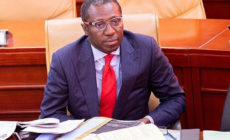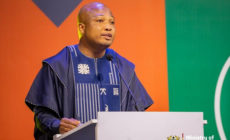Population Council – Social interventions not helping population control
- Posted on
- Comment
The National Population Council (NPC), is again advocating for a cap on the number of children citizens can have.
In the Council’s view, some government interventions are contributing to the country’s Ghana’s ballooning population.
It has long maintained that women must be limited to giving birth to three children.
In an interview with the Daily Graphic, the Executive Director of the NPC, Dr. Leticia Appiah, said taxpayers must not be footing the bill of extra children.
“The taxpayer must not be made to bear the cost of additional children by families who exceed the three children. No, it should not be a burden on the state, so we must review our social intervention programmes to reflect this policy.”
As an example, she said the free maternal health policy should tally with fertility rate targets.
The council seeks to reduce the fertility rate to 3.o by 2020. Ghana’s fertility rate was around 4.12 in 2015, per World Bank statistics.
“We need to balance between reproduction and production because some of our policies are at variance with the population policy.”
She is worried that Ghana’s population, which is currently estimated at 29.6 million according to the Ghana Statistical Service, could double in 28 years.
In the last 30 years, Ghana maintained a growth rate of 2.5; comparative to the global average of 1.5.
Role of family planning
Dr. Appiah added that moves to control the population growth rate must pivot off improved family planning services.
The National Population Council has previously stressed the need for the establishment of a family planning and reproductive health fund to help acquire basic contraceptive materials and services for the citizenry.
It said this has become necessary due to decline in international donor support to family planning programmes and services coupled with the surge in teenage pregnancies in the country.
Population growth rate has an effect on the quality of lives as it worsens poverty particularly among low-income families, and also places a huge burden on the limited infrastructure and resources of the country.











 (Selorm) |
(Selorm) |  (Nana Kwesi)
(Nana Kwesi)